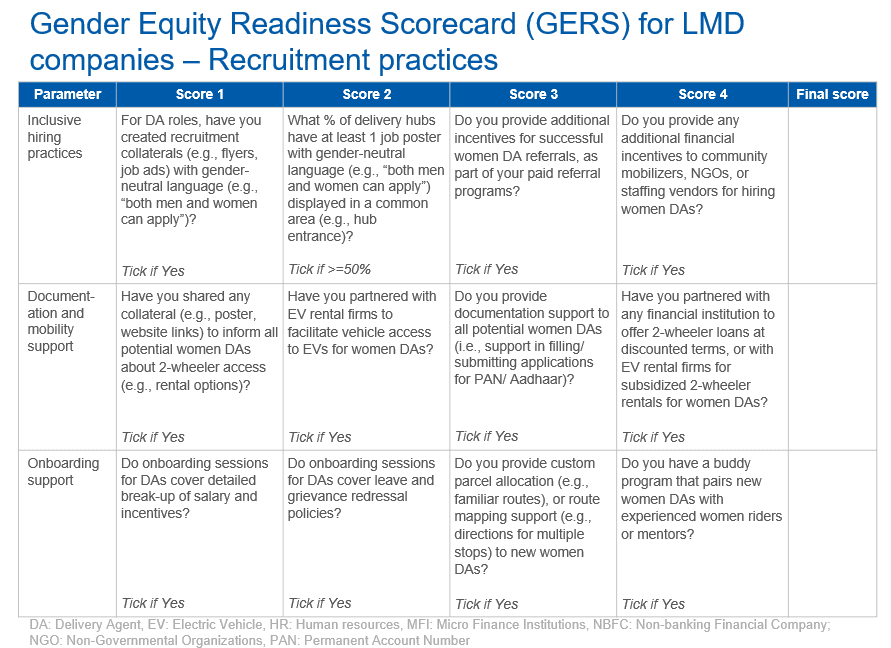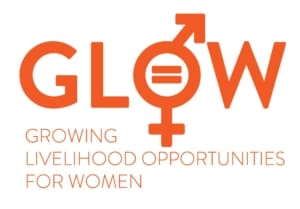Growing Livelihood Opportunities for Women
Tracking Progress on Gender Diversity through GERS - Last-Mile Delivery
A scorecard to assess last-mile delivery companies on their performance on gender equity in entry-level roles and identify areas of improvement

What is the GERS Scorecard?
The Gender Equity Readiness Scorecard (GERS) is an open-source tool developed by FSG’s GLOW program. The purpose of the GERS is to offer a quick, objective assessment of gender equity within a company. This tool:
- Is designed to be used by either the companies themselves or independent evaluators
- Is recommended to be used annually/ bi-annually to track progress
- Has been designed to evaluate an enterprise, and not just one delivery hub
- Does not include scores on parameters mandated by law (e.g., maternity leave)
- Can be used effectively by a medium or large enterprise [1]
What are the criteria for assessing gender equity progress in the GERS?
The Gender Equity Readiness Scorecard (GERS) for last-mile delivery companies evaluates progress on gender equity across four key criteria:
- Outcome criteria focus on women’s representation in delivery agent and under-the-roof roles in last-mile delivery hubs
- Recruitment practices criteria evaluate if hiring approach (e.g., channels, collaterals), documentation/ mobility assistance (e.g., access to EV rentals), and onboarding process are inclusive and ensure seamless integration for all new hires
- Policies criteria focus on robust safety protocols, flexible working options, and health and well-being measures that ensure secure and dignified workplaces for women
- Governance criteria focus on efforts to build capability for managers and leaders, along with robust tracking of diversity metrics to embed accountability, sustain progress, and drive a culture of inclusion across the organization
How can last-mile delivery companies and ecosystem players use the GERS to measure their progress?
Last-mile delivery companies can use the GERS tool to:
- Get a clear, objective baseline of the company’s performance on gender equity entry-level delivery agent roles and under-the-roof roles in delivery hubs
- Identify the next set of policies and practices they can implement to improve gender equity
- Track the company’s progress over time in becoming more gender-ready, and boosting women’s participation
Ecosystem players (e.g., governments, funders) can leverage the GERS to:
- Nudge companies to prioritize gender equity by incentivizing an annual self-assessment through GERS
- Benchmark companies on their performance on GERS and recognize companies leading the change
- Identify emerging trends (e.g., rise in inclusive hiring) and challenges (e.g., limited safety mechanisms) related to gender equity
- Use GERS insights to prioritize specific policies, incentives, and programs for improving gender equity in the industry
To access the GERS for last-mile delivery companies, click here >
[1] An enterprise with investment in plant and machinery/equipment exceeding ₹25 crore or annual turnover above ₹100 crore (Source: Ministry of MSME)

